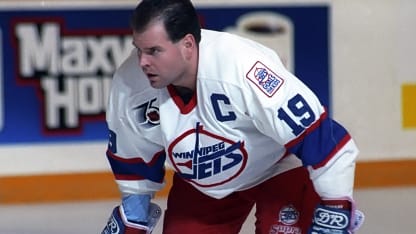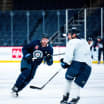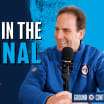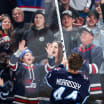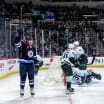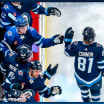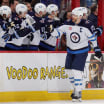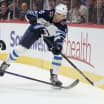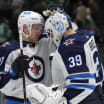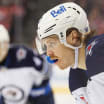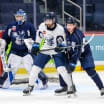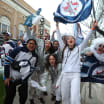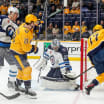But perhaps another one of his best experiences in the game occurred 10 years earlier. First though, a little background is necessary.
During the 1981-82 season, Murray was playing collegiate hockey with the University of North Dakota. It was a move that wasn't a popular route for players with NHL aspirations.
"I was told, or strongly suggested to, by a head central scouting figure, that if I ever wanted to play in the National Hockey League that I couldn't go play in the collegiate system," said Murray, a third-round pick of the Blackhawks in the 1980 NHL Draft.
"I didn't think I was going to make it (to the NHL). I thought there was a chance in my dreams I'd make it. I felt that trying to get an education and having that ability to have something to fall back on was an important part of where my path was heading. I decided to go that route."
That season Murray scored 22 goals and 51 points in North Dakota's 42 games. The season before, he racked up 78 points in 38 games. Those numbers caught the eye of the group putting together Canada's team for the World Junior Hockey Championship. It was the first team put together by Hockey Canada's Program of Excellence, and would be assembled with players from the junior leagues across the country. In addition, collegiate players like Murray would also be considered.
Not only would Murray make the team, he was selected as team captain.
"It was a big deal that they decided on an American collegiate player. You're Canadian, but you're playing in the collegiate system. There were people upset that I was chosen as captain of that team, rather than someone from the junior ranks," said Murray. "It was such an honour. You're not going to sit there and say 'I don't think it's right.' I took great pride in being the captain of that team. Every player on that team was a leader in their own right."
That year, the tournament was held in Rochester, Minnesota, but Canada played three round robin games in Winnipeg. They won the first two 5-1 over Finland, and 3-2 over the defending champions from Sweden, with Murray scoring the game-tying goal.
Then came a match-up that stands out to Murray to this day - a Boxing Day tilt against the Soviet Union inside the Winnipeg Arena.
Murray recalled watching the 1972 Summit Series, when teachers in his school would shut down classes and bring televisions into classrooms to watch the games. Now, he got to write his own chapter in the heated rivalry.
What a chapter it was. Canada trounced the Soviet Union 7-0.
"That to me was one of the more special moments I've experienced in hockey. The atmosphere in Winnipeg was tremendous," said Murray. "There was a lot of hype. This is going back to an era where it was, and still is, a big deal in Canada to play Russia. Back then, it didn't happen all that often."
Canada would go on to win the gold medal that tournament. The format back then was different than it is now, with the Canadians clinching top spot on the podium with a 3-3 tie with Czechoslovakia - who needed to beat Canada to win gold.
However, because the game ended in a tie, no anthem was going to be played.
Murray and his Canadian teammates took care of that, belting out their own rendition of 'O Canada' with no musical accompaniment.
"For all the guys that played on that team, I don't think there would be one player, whether you remember other details or not, nobody is going to forget us singing O Canada together," Murray said.
"The make-up of that team really bonded together. There was no separation between the collegiate and the juniors inside the locker room whatsoever. We were hockey players, we grew up in Canada and that's what it was all about. By singing the national anthem, it was such a defining moment of what was such a special tournament in so many ways."
